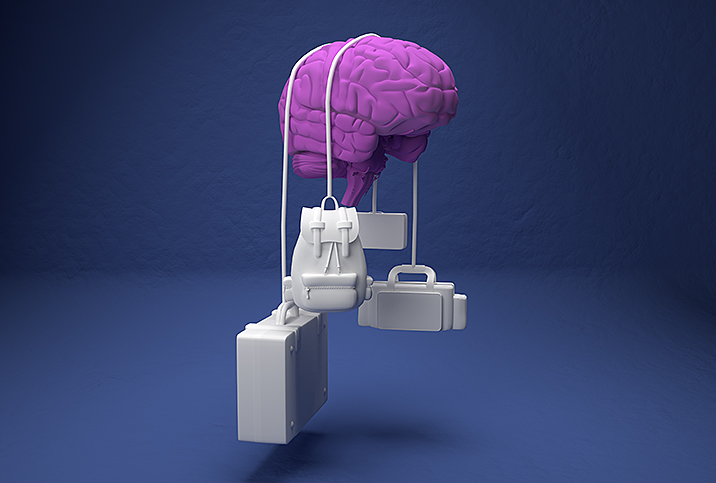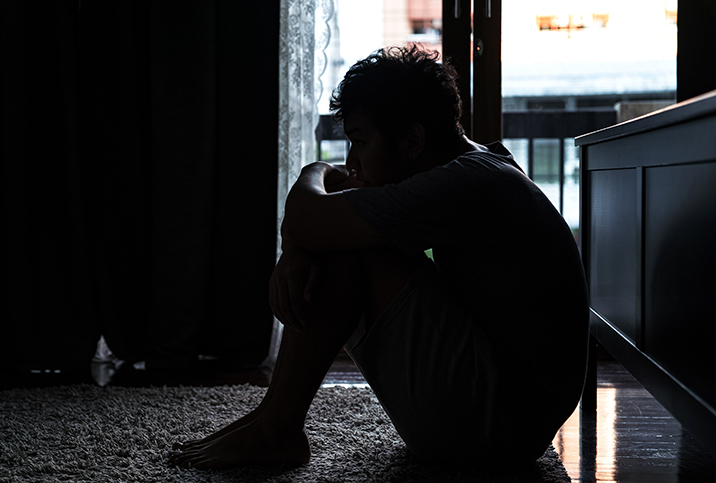How Your Emotional Baggage Can Ruin Your Sex Life

Even the best relationships have their rough patches, but when those scattered times become a pattern of conflict, you may feel yourself starting to crack under the pressure. While it's easy to place blame on external forces such as work, finances and life in general, your emotional history may be the real culprit. Once you understand that, addressing your personal issues can set your relationship, and your sex life, back on track.
Effects of past emotional trauma
No matter how sure you are that you've moved on from the hurt of past relationships, it's likely you have triggers that pop up at the worst times. My husband and I have been together for 14 years and have an amazing partnership, but every so often, trauma from a past abusive relationship can throw me into an emotional tailspin and send me back to some of my darkest moments.
While I've worked past the worst of it, the feelings of worthlessness, guilt and self-hatred sometimes just won't leave me alone. Three years of counseling taught me that my brain was still in survivor mode, and even the slightest hint of conflict would flip the switch to my fight-or-flight setting. The unfortunate side effect of this response is that I would often lash out at my husband, which created resentment that was killing our sex life: It was destroying my sex drive, my ability to be aroused and climax, and even my desire to be with my partner.
How trauma kills your libido
Even though the abuse is long over, the effects of these experiences are still very real, and my body remembers. In certain sexual positions, I freeze or have a flashback. It's only for the briefest of seconds, but it's distracting enough to destroy my arousal and the potential to climax.
Such reactions are very common for abuse survivors and they represent a form of PTSD that, while treatable, will not go away on its own. Not all abuse survivors will experience these sexual symptoms, but they are possible and range from low libido and difficulty getting and staying aroused to the inability to climax. I was affected by all of these symptoms.
With time, though, I was slowly able to understand why they were happening, and that led to the most important conversation I have ever had with my husband. This is an important step for any trauma survivor and their partner as they work through past trauma.
Talking to your partner
Once you accept the cause of your baggage, you can begin to heal and distinguish what issues are projections of past trauma. My biggest hurdle—one that I still face, in fact—is constantly thinking my husband is angry with me. This is a symptom of my low self-esteem, which is a result of years of emotional torment at the hands of previous partners.
My low self-esteem made it impossible for me to relax around my husband. I found myself walking on eggshells, and we slowly drifted apart, which ultimately ruined all sense of intimacy.
After a few months in counseling, I realized that my past trauma was sabotaging everything I loved. At the recommendation of my counselor, I talked to my husband and used a very specific method to share my concerns:
-
We sat down at a neutral time when we were both relaxed and away from the kids.
-
I discussed with my husband the baggage of my past.
-
I then expressed how this baggage was affecting our relationship.
-
Finally, I asked him to help me and to be patient as I worked to overcome this baggage.
Once I openly expressed my past, my husband became my biggest supporter. Every day, he reminds me that I no longer need to live in fear. Together, we are moving forward, and little by little, my life gets easier. My opening up allowed my partner to understand me, and we both were able to let go of the built-up resentment that was causing us so much harm in the bedroom.
Using help in healing
Now that I've realized the benefit of professional counseling, my relationship has healed, and we've shared the exciting experiences that we always wanted to have in our sex life. We talk openly in our daily life, but we have also learned the value of giving each other space.
Most importantly, we've learned the value that open communication can have in healthy intimacy. Your partner should be your biggest ally, but you should also seek the help of a trained professional who can help you navigate the trauma that could be destroying your sex life.


















